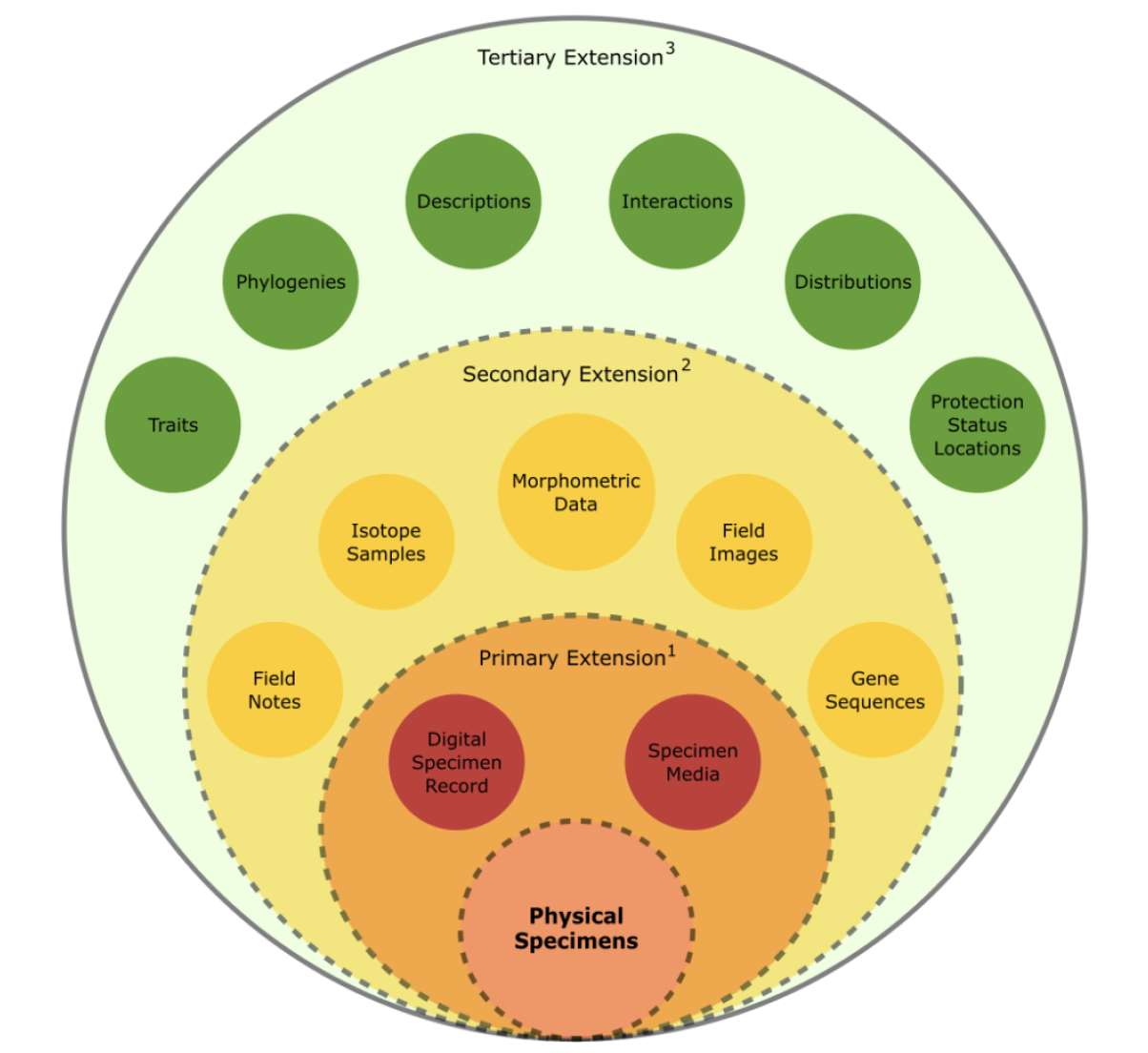Our Work

Components of the extended specimen. Physical Specimens: Approximately 1 billion physical specimens reside in U.S. museums, including derivative collections such as tissue samples. 1Primary Extension: The digitized version of the specimen metadata in the form of a digital specimen record, as well as data and images, audio and video files are held by collections that hold physical specimens and also contribute to the national specimen database. 2Secondary Extension: Data that reside in private collections, institutional repositories, and national/international repositories, often disconnected physically and digitally from the original specimen, which may link to individual specimens. 3Tertiary Extension: Data from other repositories that link to taxonomic names applied to specimens or collection event (including collector, collections location)
In 2019, BCoN released the Extended Specimen Network (ESN) report informed by a series of workshops and stakeholder discussions. The report proposed a national agenda to leverage digital data in biodiversity collections for new uses. The ESN includes both the physical specimens and their associated genetic, phenotypic, and environmental data. The network relies on new data-integration mechanisms that digitally link all of the dynamic components. In addition to the series of workshops and stakeholder discussions that resulted in the ESN report, BCoN has organized and collaborated on several other initiatives, including:
- Biodiversity Literacy in Undergraduate Education or BLUE, which started as a result of initial funding support through BCoN
- Initiating engagements with international stakeholders that led to the GBIF-led consultation on converging DiSSCO’s Digital Specimen and BCoN’s Extended Specimen concepts and the creation of the International Partners on the Digital Extended Specimen (IPDES), a group that facilitates the coordination of a globally integrated network of stakeholders to build an extensible technical and social infrastructure of data, tools, and working practices in support of the Digital Extended Specimen vision (Hardisty et al., 2022).
- Partnering with AIBS, NSCA, and SPNHC to help secure the passage of the CHIPS and Science Act, which included key collections related provisions, such as support for a specimen management plan requirement for research proposals that generate specimens and an action center on biological collections.
- Leading community engagements and discussions, in partnership with the U.S. Culture Collection Network, about implementing the specimen management plan requirement for grant applications within the NSF Biological Sciences Directorate.
Since the NSF grant concluded in the fall of 2020, the BCoN Steering Committee has continued to regularly convene to plan next steps. Looking to the next stage of community engagements, BCoN will be organizing a series of listening sessions and workshops in 2023-2024 to engage a wide range of stakeholders (e.g. federal agencies, ecological data, climate and environmental data, genetic data, biodiversity informatics, bioeconomy data, One Health data) in the development of the Extended Specimen Network.
